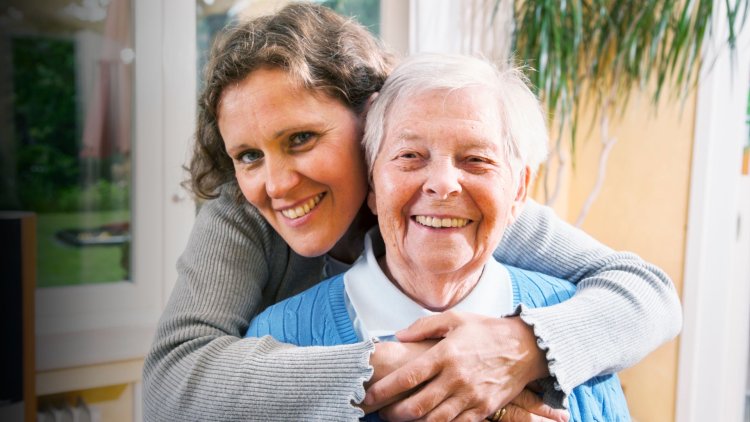A Guide to Identifying Early Warning Signs That a Senior May Need Home Care
Learn how to identify early warning signs that a senior may need senior care. This guide offers tips on recognizing health changes and arranging home support.

As our loved ones age, it’s natural for them to experience changes in health or abilities. However, certain signs may indicate that it’s time to consider senior care to ensure their safety and well-being. Recognizing these warning signs early allows families to take proactive steps toward providing the support seniors need. Below is a comprehensive guide to help you identify these signs and take action.
Physical Health Warning Signs
Changes in physical health can be clear indicators that a senior might need senior care. Keep an eye on the following:
- Frequent Falls or Injuries: If your loved one is falling often or has bruises they can’t explain, it could indicate mobility issues or balance problems that require assistance.
- Unexplained Weight Loss: This could signal difficulty preparing meals, poor appetite, or underlying health problems that need medical attention.
- Poor Personal Hygiene: Noticeable hygiene issues, such as unwashed hair, body odor, or neglected dental care, might mean they are struggling with bathing or grooming independently.
- Chronic Fatigue or Weakness: A lack of energy may suggest difficulty performing daily tasks or managing chronic conditions.
What You Can Do
Schedule a visit to their doctor to rule out medical issues or medication side effects. Meanwhile, gather information on senior care services that provide help with hygiene, meal preparation, or mobility.
Mental Health Warning Signs
Mental health and cognitive changes are common as we age but should not be ignored if they impact daily life. Be aware of:
- Memory Issues: Forgetting appointments, losing items frequently, or repeating the same questions may indicate the early stages of cognitive decline or dementia.
- Confusion or Disorientation: Getting lost in familiar places or struggling with simple instructions could be a sign of deteriorating mental health.
- Mood Swings or Depression: Loss of interest in hobbies, increased irritability, or withdrawal from social interactions might suggest emotional distress or loneliness.
- Anxiety About Simple Tasks: Hesitation or fear about activities they once handled easily, such as shopping or driving, may be a symptom of declining confidence or independence.
What You Can Do
Talk openly and compassionately about the changes you’ve observed. A visit to a mental health professional or neurologist can provide a thorough assessment. Senior care services specializing in dementia or emotional support can also help.
Difficulty Managing Daily Living Activities
Seniors struggling with daily tasks might be in need of senior care. Look for the following signs:
- Cluttered or Untidy Living Space: If their home is unusually messy or unsanitary, it could mean they’re having trouble with household chores.
- Difficulty Managing Medications: Missing doses, taking expired pills, or mixing up medications are serious concerns that can jeopardize health.
- Paying Bills Late or Financial Confusion: Seniors who struggle with organizing finances or remembering payment due dates may need help managing these responsibilities.
- Neglecting Groceries or Errands: An empty fridge or uncompleted errands could mean they’re unable to handle routine tasks.
What You Can Do
Suggest small ways to assist, like helping to organize medications or paying bills online together. If the need is ongoing, explore senior care options that offer medication reminders or light housekeeping.
Approaching the Conversation With Your Loved One
Discussing the need for senior care can be a sensitive topic. Approach it with empathy and understanding:
- Choose the Right Time: Find a calm and relaxed moment to bring up your concerns. Avoid discussing it during stressful or emotional periods.
- Frame the Conversation Positively: Use phrases like “We want you to feel as safe and comfortable as possible” rather than focusing on what they can’t do.
- Highlight Independence: Explain how senior care can enhance their independence by providing support with challenging tasks, rather than taking it away.
- Listen and Understand: Give them the opportunity to express their feelings or fears about senior care. Validation goes a long way toward acceptance.
Steps to Arrange Senior Care Services
Once you’ve identified the need, here’s how to proceed:
- Assess Needs: Make a list of the specific tasks where your loved one needs help, such as personal care, meal preparation, or mobility assistance.
- Research Providers: Look into local or accredited senior care agencies that offer services tailored to seniors’ needs.
- Schedule Consultations: Meet with potential caregivers or agency representatives to discuss care plans, pricing, and flexibility.
- Trial Services: Start with a limited schedule to help your loved one adjust to the idea of having support at home.
Monitoring Ongoing Needs and Adjusting Care Plans
Caring for seniors is a dynamic process, and their needs may shift over time. Here are tips to ensure the care plan remains effective:
- Regular Check-Ins: Visit or call frequently to monitor their health, habits, and satisfaction with care.
- Stay Connected With Caregivers: Communicate with senior care professionals about any changes in their condition or behavior.
- Adjust the Care Plan as Needed: Be flexible if you notice they could benefit from additional services, such as physical therapy, transportation, or companionship.
- Encourage Open Dialogue: Create a safe environment where your loved one feels comfortable discussing their feelings and needs.
Final Thoughts
Recognizing the early warning signs that a senior may need senior care is an essential step toward ensuring their safety, health, and happiness. By addressing these signs promptly and with compassion, you empower your loved one to age comfortably and confidently in their own home. Through regular monitoring and thoughtful care adjustments, you can continue to support them in living their best possible life. Senior care services not only provide practical help but also foster a sense of dignity and independence for your loved ones.
Read More Blogs:-






















